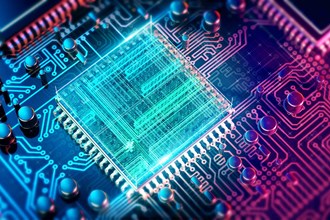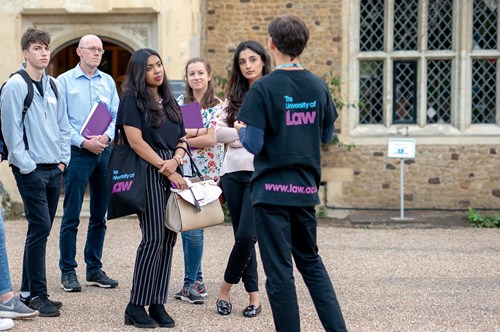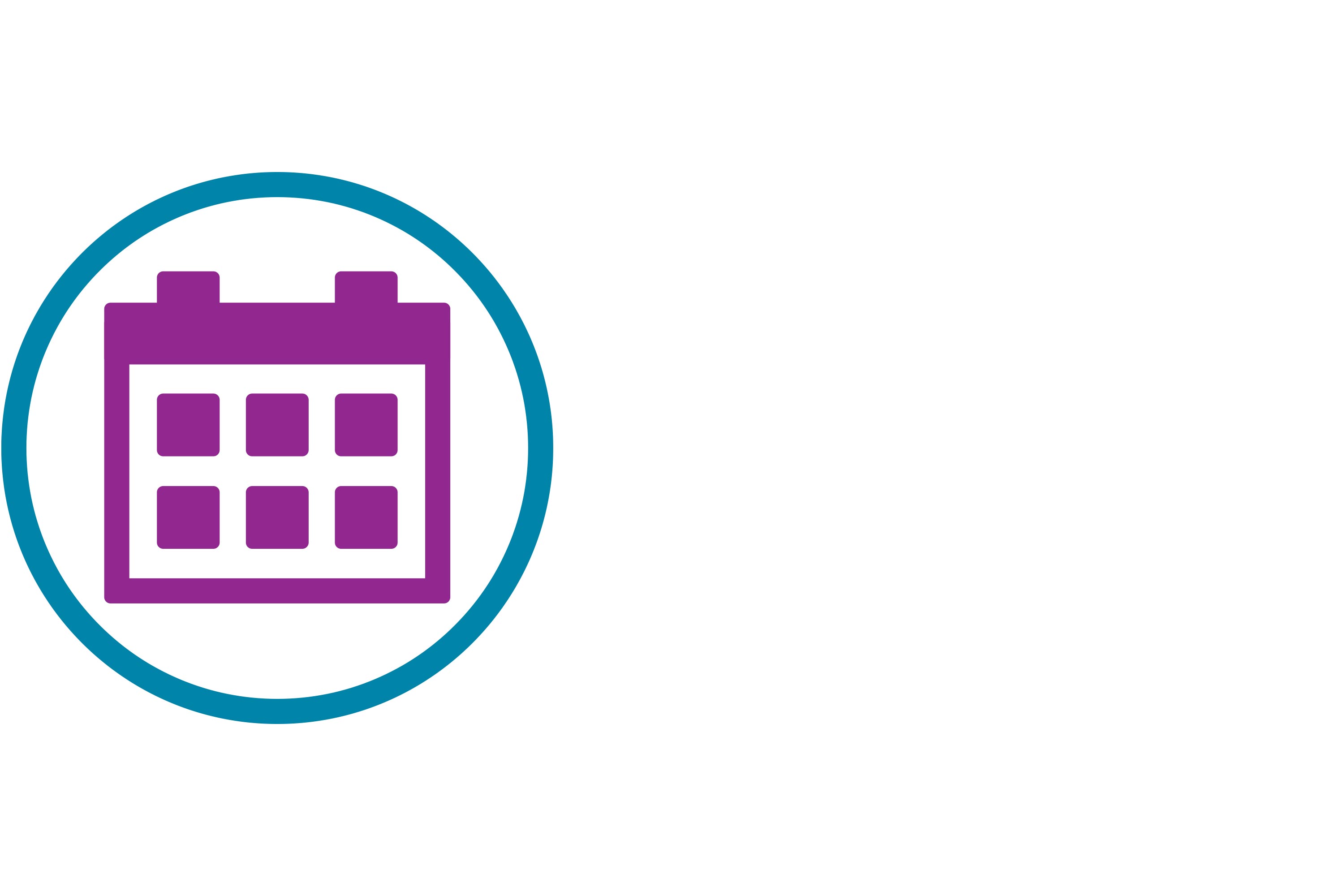Unique modules such as Data Management Technologies and Applications of Artificial Intelligence enhance your future career prospects.
Make an Enquiry

Enquiry form could not be loaded
This practical MSc Computer Science conversion course at The University of Law is designed to prepare you for the real world. Our graduates will leave us ready to explore how digital technology can be applied in their non-computing fields, or ready to work in IT roles across a range of industries, including technology, business, law and public services.
We are focused on your future employability and alongside your studies you will have the opportunity to build valuable work experience, apply theory to the real world, and enrich your CV by working with local and national companies on live projects to solve challenges and support their needs.


2:2 or above from a UK Bachelors degree, or equivalent qualifications.
Entry requirementsFull-time or Full-time (Weekend)
February 2026
See all Start DatesOn this course you will build your knowledge in core computing concepts such as designing and building software, data management and creating effective web presence. You will then tailor your course around your interests by choosing modules that match your interests and career ambitions.
Alongside your studies, we will immerse you in the local tech community, with regular guest speakers and networking events allowing you to learn from the experts and make connections to support your future career prospects.
What are the career opportunities in Computer Science?
MSc Computer Science graduates can start out as cyber security professionals, AI/Data science engineers, analysts, testers, programmers, consultants, web/mobile developers, technical architects, or helpdesk engineers. They would also have the knowledge and experience to start their own business or apply their new skills to their existing fields.
Why study Computer Science at The University of Law?
You won’t need any specialist equipment at home, as all the software you will use is cloud-based. Our campuses will house specialist equipment that you will need, such as high-spec computers and VR headsets.
"Superb! I can't recall a single instance when I was stuck with any of my questions, all of our respected professors address any concerns and questions swiftly whether that was on-campus, in-person or online. Also, the project supervisors are very helpful in providing their highly experienced opinions to maximise the productivity I gained from the task of creating the final project of the course."
- Shahzaib Iftikar, MSc Computer Science student
Core modules (computing)
Applications of AI - 15 credits
Software Development - 15 credits
Data Management Technologies - 30 credits
Web Technologies - 30 credits
Non-computing modules
Network and Cloud Management - 15 credits
Data and Decision Making - 15 credits
MSc Project in Computer Science - 60 credits

A new financing option provided by third-party firm StepEx is now available for selected courses.
Find out more
To get a full picture of how studying this course works during the year, take a look at our course date breakdown.
Assessments are designed to meet the programme and module learning outcomes and are both formative and summative. The formative assessments include the preparation and feedback from teaching sessions (e.g. lectures, seminars, workshops and presentations). Summative assessment that contributes to the grade, may include portfolios, artefacts, group work/studies, presentations (vide, oral, poster) and reflective assignments.
Quizzes and small scale class exercises will be used to develop confidence in the first 2-3 weeks, and will then be optional for the remainder of a unit. The aim of this formative assessment is to allow a safe-environment in which to learn which does not impact negatively on student performance.
All students on our MSc Computer Science (Conversion) will study two core modules which introduce the fundamentals of computing:
You will then choose optional modules under one of three pathways to tailor your studies to your area of interest and career goals.
All optional modules are indicative and subject to availability.
We care about your career, which is why we offer support with job applications and other work experience opportunities as soon as you accept your place.
Discover more
You can apply for the MSc Computer Science (Conversion) directly with the University.
2025/26 Course Fee (for courses starting on or after 1 July 2025)
Domestic students
London: £10,600
Outside London: £10,000
Non-domestic students
London: £17,000 (or £15,500 including a £1,500 International Bursary*)
Outside London: £16,000 (or £14,500 including a £1,500 International Bursary*)
2026/27 Course Fee (for courses starting on or after 1 July 2026)
Domestic students
London: £10,900
Outside London: £10,300
Non-domestic students
London: £17,500
Outside London: £16,500
All fees above include a deposit amount of £250.
By studying a Master's degree you could be eligible for a Postgraduate Loan.
We also have a range of scholarships and bursaries available to help you invest in your future.
If you’re a ULaw alumnus, you may be eligible to receive our £1000 Academic Master's Alumni Discount.
We have students from over 120 different countries throughout our campuses, with a dedicated team to help international students.
If you are an international student and are coming to the UK to study, then you must apply to the Home Office for a visa. In most cases you will need to obtain a Student Route visa. In order to apply for this visa you must be sponsored by an education provider which is licensed by the UK Home Office.
The Home Office has also introduced a Graduate Work visa which allows Graduates to work flexibly, switch jobs and develop their career in the UK for 2 years post completion of a UK degree. The Graduate route is an unsponsored visa, meaning students will not need a job offer to apply for this visa.
Please note that the University does not currently provide visa sponsorship to students for part-time study. We also cannot sponsor students for online courses due to Home Office regulations.
New pages will be added to this page in due course. Please check back soon for updates.
